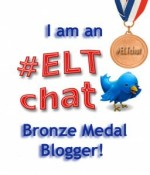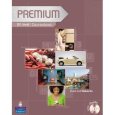About two and a half years ago I wrote a blog post entitled, Decoding skills: a neglected part of listening comprehension? In the time since then it seems that many of us have stopped neglecting those poor decoding skills, and that an interest in how decoding can help develop both listening and reading skills is on the rise.
A recent question posed by Mike Harrison on the IATEFL Facebook page about developing (rather than testing) listening skills led to a flurry of useful links in the comments, which I list below:
A presentation by John Field on Rethinking the Comprehension Approach to Listening
A summary of Sandy Millin’s 2014 presentation at IATEFL on teaching rather than testing listening
Olga Sergeeva’s blog on using authentic video clips to focus on bottom up skills.
A series of Listening Skills books written by Sheila Thorn (which I have mentioned before but which have now been re-published by Collins)
Hancock and McDonald’s forthcoming Authentic Listening Resource pack, which looks great.
Richard Cauldwell’s innovative app Cool Speech
And last, but not least, I can now reveal (drum roll), that I have spent the last eighteen months working on a new adult coursebook series for OUP, Navigate, which has a spread in each unit focusing on decoding activities to develop listening and reading skills. Here’s a short video of me talking about the theory behind a listening skills lesson I gave in Oxford over the summer.
You can also see a fuller version of the lesson and download the materials and lesson plan here.
It’s great to see so much happening in this area, and I’d be very happy to add any other links that people have- just comment below.













Hi Rachel, thanks for sharing! I enjoyed that video, too. I wonder, what different accents are represented in this new coursebook? British English and/or others?
Keep up the good work! 🙂
Laura
Hi Laura, thanks for commenting. In terms of the audio recordings in general, we have a great mix of accents- plenty of non native as well as different native speaker accents. However, for the decoding work we have stuck with British English accents as it would just get too confusing/complicated to look at all the possible variations in connected speech etc (though we do mention that there ARE variations).
Hi Rachael,
Grand job! It’s a really useful collection of links and also great to have your lesson, plan and materials.
It’s always good to see listening and reading skills promoted and discussed properly.
Thanks again,
Victoria
Thanks very much, Victoria. 🙂
hi Rachael
nice look fwd to the books, just one nitpicking point, in the video you say /w/ /y/ are added, is it not the case that they are already there and so are revealed rather than added?
also not sure if you are aware of the TED corpus search engine? – http://yohasebe.com/tcse/ which one could use to get some non-coursebook audio to use in the connected speech dictations
ta
mura
Hi Mura, Thanks for commenting 🙂 I guess it may be an arguable point, but I think I would stick by saying ‘added’ because the sounds aren’t there if you say the separate words: ‘go’ for example doesn’t have a /w/ sound, but when we say ‘go on’ we need something to get from /əu/ to /D/. Similarly in ‘the elevator’ we have /i:/ at the end of ‘the’ and /e/ at the beginning of ‘elevator’ and we add, or intrude /j/ to help our mouths link them.
The TED corpus looks fantastic. Unfortunately we couldn’t use it in a CB because of copyright issues, but it’s perfect for classroom use by dedicated teachers like yourself. All the activities in the book could be reproduced using any materials you like- but there is something to be said, I think, for having the work of analysing the features of connected speech already prepared for you.
Hi Rachel,
I think that using short (micro) activities for building decoding skills was the first ELT paper I ever wrote, just over 3 years ago. At the time I hadn’t heard of John Field, and I was pretty much just trying to figure out how to apply Anne Cutler’s ideas to my own classroom. But it was your blog posts on Field’s work, and the practical classroom activities you outlined that helped me turn theory into practice. So this is a big thank you for helping me make my class a batter place for learning. And also a congratulations. I’m sure Navigate is fantastic. And much needed.
Kevin
(and sorry to be a little presumptuous, but that first paper, if anyone if interested, can be found here:
It’s not as polished as the rest of the resources on the list, or as focused on connected speech, but it does have a few ideas for helping students decode English.)
Hi Rachael,
Very sorry and two apologies to make:
1. I had no idea that Scribd was going to throw the entire paper all over your comment section. Please feel free to take that down.
2. Even more sorry that I have managed to misspell your name again. Wow. I am so sorry.
End of apology (but face is still red)
Kevin
No problem, Kevyn [;)] It’s a great paper 🙂 Thanks for posting it, and for all the chats etc about decoding. In fact I got interested in all of this before I was asked to get involved in the CB series, so it was a very happy coincidence of interests, though would have been nice if I hadn’t been so busy that I ended up neglecting Twitter friends such as yourself and Mr Griffin. Hoping to have a bit more time to read posts again soon.
Reblogged this on teaching young learners and commented:
We always think of speaking and reading when thinking of and preparing for language lessons, but a key skill we often overlook is listening.
Good teaching so important for me for all English learner
Hi Rachael,
Just to let you know that we’ve shortlisted this blog post for this month’s TeachingEnglish blog award and I’ll be making a post about it on today’s TeachingEnglish Facebook page http://www.facebook.com/TeachingEnglish.BritishCouncil, if you’d like to check there for likes and comments.
Best,
Ann
That’s fantastic, Ann, thank you:)
Pingback: Decoding skills for listening: a collection of useful links | sundaravelavan
Great job 🙂
Will you plz give me ideas for teaching English!!!
I teach 3rd grade students (Arab students) and they keep using their mother tongue language.
Hopefully you will find lots of ideas on this site 🙂 I will think about doing a post on using/not using mother tongue though, thank.
You did an amazing job!! greetings from Malaysia!
Really good to see this issue addressed in published materials as well as in the classroom. Navigate looks like a brilliant series if the video is anything to go by.
Pingback: TBVGBTS: Listening in a second language class | The Breathy Vowel